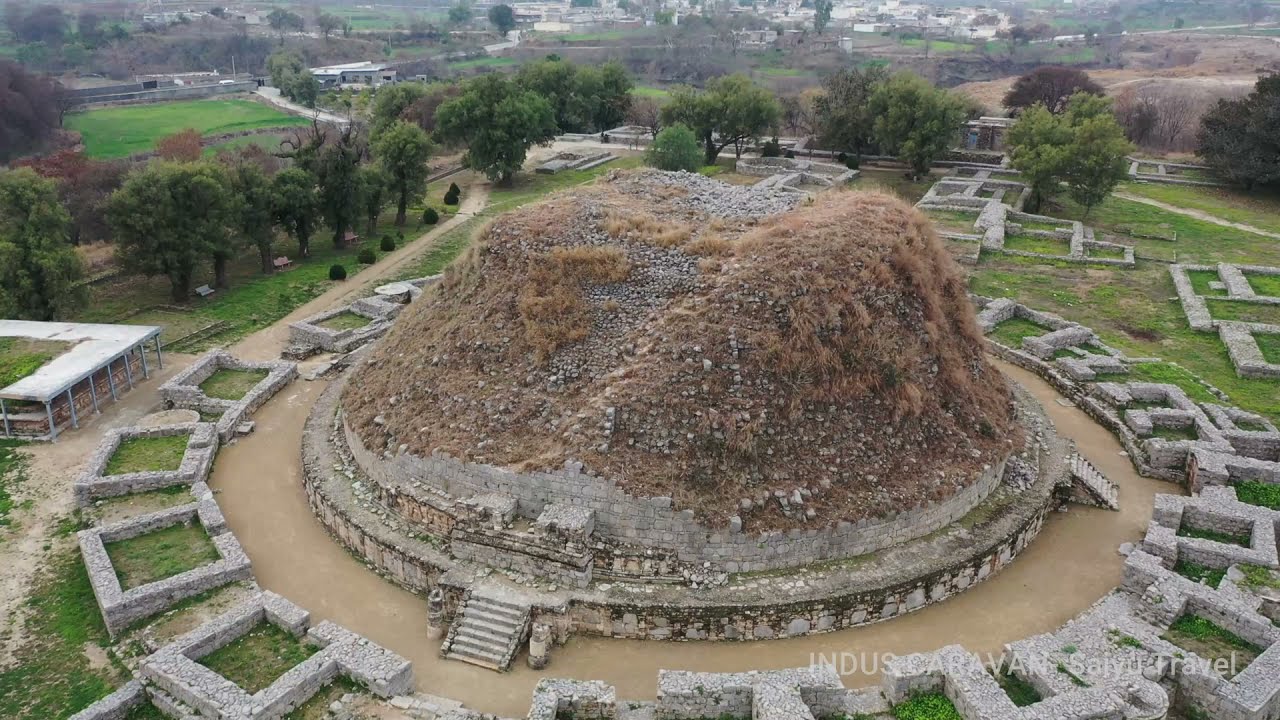Taxila or “City of Stones” is a city of the Gandharan civilization. It was a hub of Buddhism, a centre of learning, an urban metropolis. It also a meeting point of various cultures, namely the Achaemenids, Greeks, Mauryans, Scythians, Parthians, Kushans, Huns and eventually the Muslims.
Location of Taxila :
Taxila is Located in the Taxila Tehsil of Rawalpindi District. It lies approximately 25 kilometres northwest of the Islamabad–Rawalpindi metropolitan area and is just south of Haripur District in Khyber Pakhtunkhwa.
History of Texila :
Taxila was take over by Alexander the Great in 327 BC after which it was rule by the Mauryans. Towards the end, it came under Asoka’s rule during which time it reached the zenith of its development and culture. Eventually, Taxila was take over and destroyed. The last significant historical period for Taxila was the Gandhara period. It was during this time that Taxila became a world known centre for philosophy and art. The city has a strong tourist base and also attracts many tourist from the region of China and Greece, primarily because of it being a centre for Buddhism and Buddhists from all over the world come and visit the stopas in the city because of their religious significance to them.
The first significant settlement in the region was establish in 1000 BCE. By 900 BCE Taxila was engaged in regional commerce. Although Taxila was sometimes rule as part of the Gandhara Kingdom, especially after the Achaemenid era. The city managed to establish itself as an independent city-state multiple times. It was built along the” Royal Highway” which linked the capital of the Maurya Empire, Pataliputra, with Peshawar, Pushkulavati, and parts of Central Asia including Kapisa, Bactria, and Kashmir. Given its strategic location, several kingdoms wanted to control Taxila, and therefore the city changed hands many times.
Taxila was designated a UNESCO World Heritage Site in 1980 in particular for the ruins of the four settlement sites which “reveal the pattern of urban evolution on the Indian subcontinent through more than five centuries”. The serial site includes a number of monuments and other historical places of note in the area besides the four settlements at Bhir, Saraikala, Sirkap, and Sirsukh
Overview on Taxila :
The Taxila archaeological site is located in the province of Punjab, Pakistan. It is a city that is very well known for having strong ties and being the centre of Buddhism in the country. Many statues of Buddha depicting the various stages of his life have been excavated and are currently present both at the Taxila museum as well as various stupas in the city however the best of these statues have been taken abroad and are displayed in museums there. There are 5 small stupas in the city. Statues of other famous people in history such as Alexander the Great and the eminent ruler Asoka are also be found in the city of Taxila. All these statues show great skill and craftsmanship because of the detail and intricacy that went into the making of these statues.
One of the oldest recognized universities of the world is also present in Taxila. This university came into being in the Gandhara period. At one stage, it had 10,500 students including those from Babylon, Greece, Syria, and China. Experienced teachers taught languages, Vedas, philosophy, medicine, politics, warfare, accounts, commerce, documentation. Furthermore music, dance and other performing arts, futurology, the occult and mystical sciences and complex mathematical calculations were also taught here.
Architechtural Stuctures :
- Some famous architectural stuctures of Taxila are as under
- Dharmarajika Stupa
- Bhir Mound
- Sirkap
- SirsukhKunala Stupa
- Jaulian Stupa
Access to Texila :
Texila is accessable through following ways
By Air
The nearest airport to Taxila is Islamabad International Airport located 36.5 kilometers away. Peshawar’s Bacha Khan International Airport is 155 kilometers away.
By Road
The ancient Grand Trunk Road is designated as N-5 National Highway. Which connects the city to the Afghan border, and northern Punjab. The Karakoram Highway’s southern terminus is in nearby Hasan Abdal, and connects Taxila to the Chinese border.
The city is also linked to Peshawar and Islamabad by the M-1 Motorway, which in turn offers wider motorway access to Lahore via the M-2 Motorway, and Faisalabad via the M-4 Motorway.
By Train
Taxila is served by the Taxila Cantonment Junction railway station. Taxila Junction is served by the Karachi–Peshawar Railway Line, and is the southern terminus of the Khunjerab Railway, which connects Taxila to the Havelian railway station.


Comment (0)